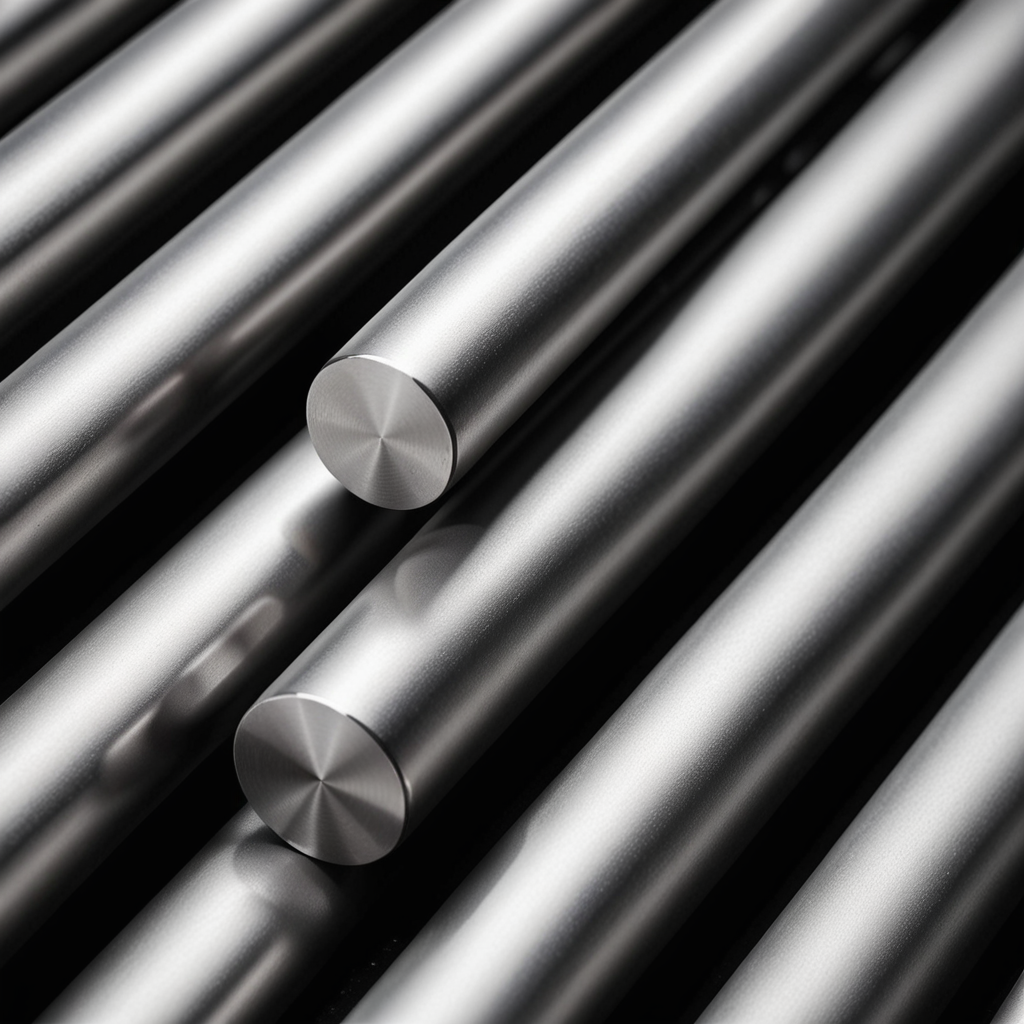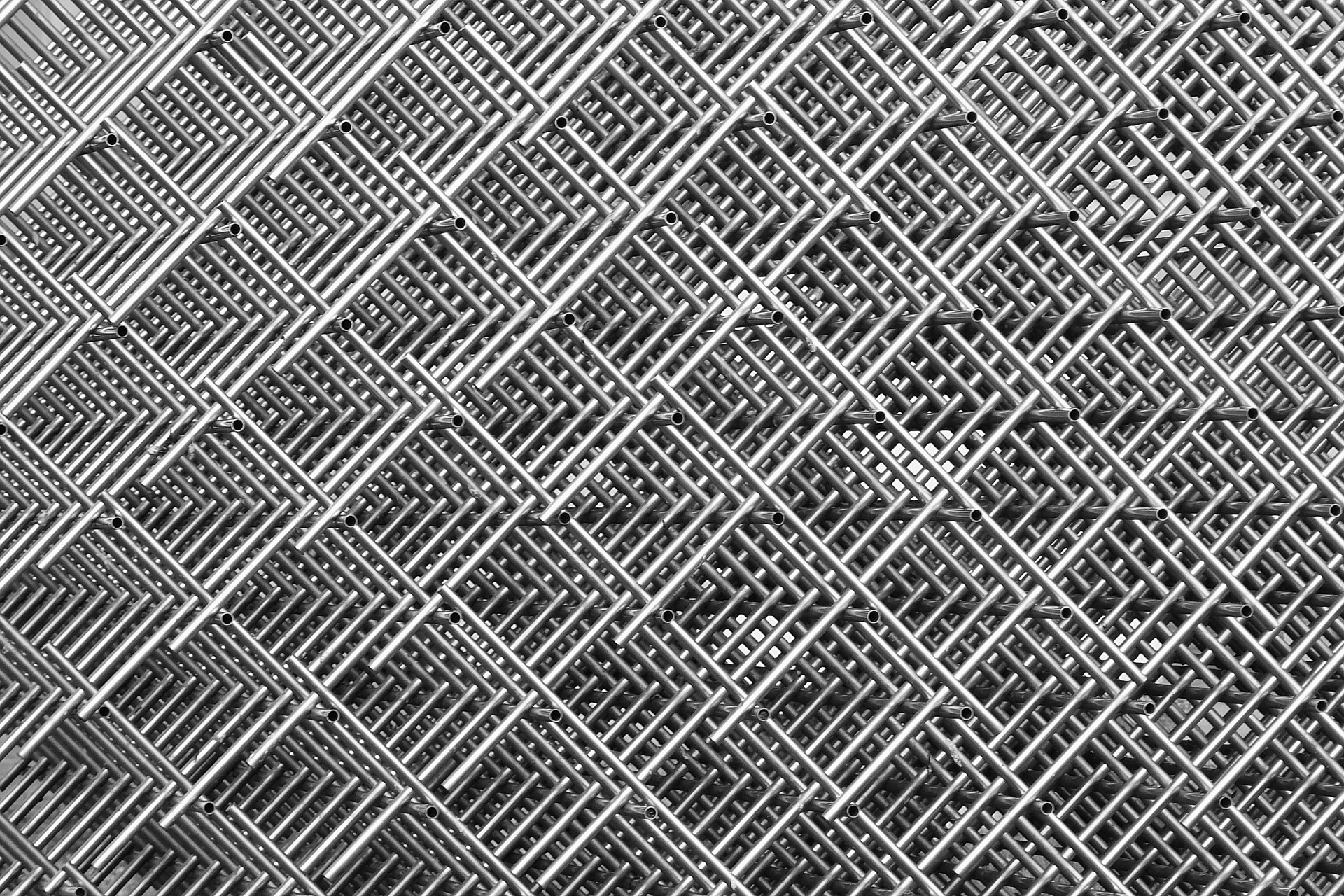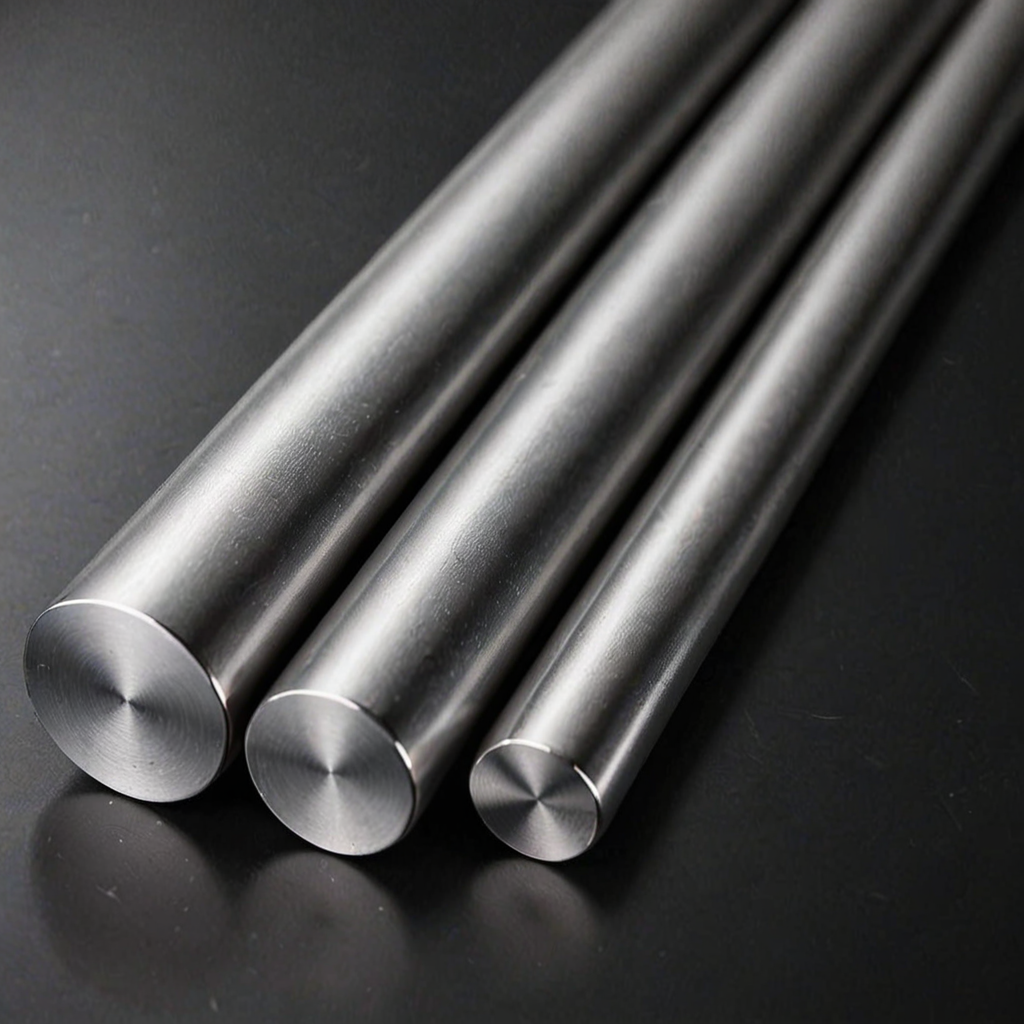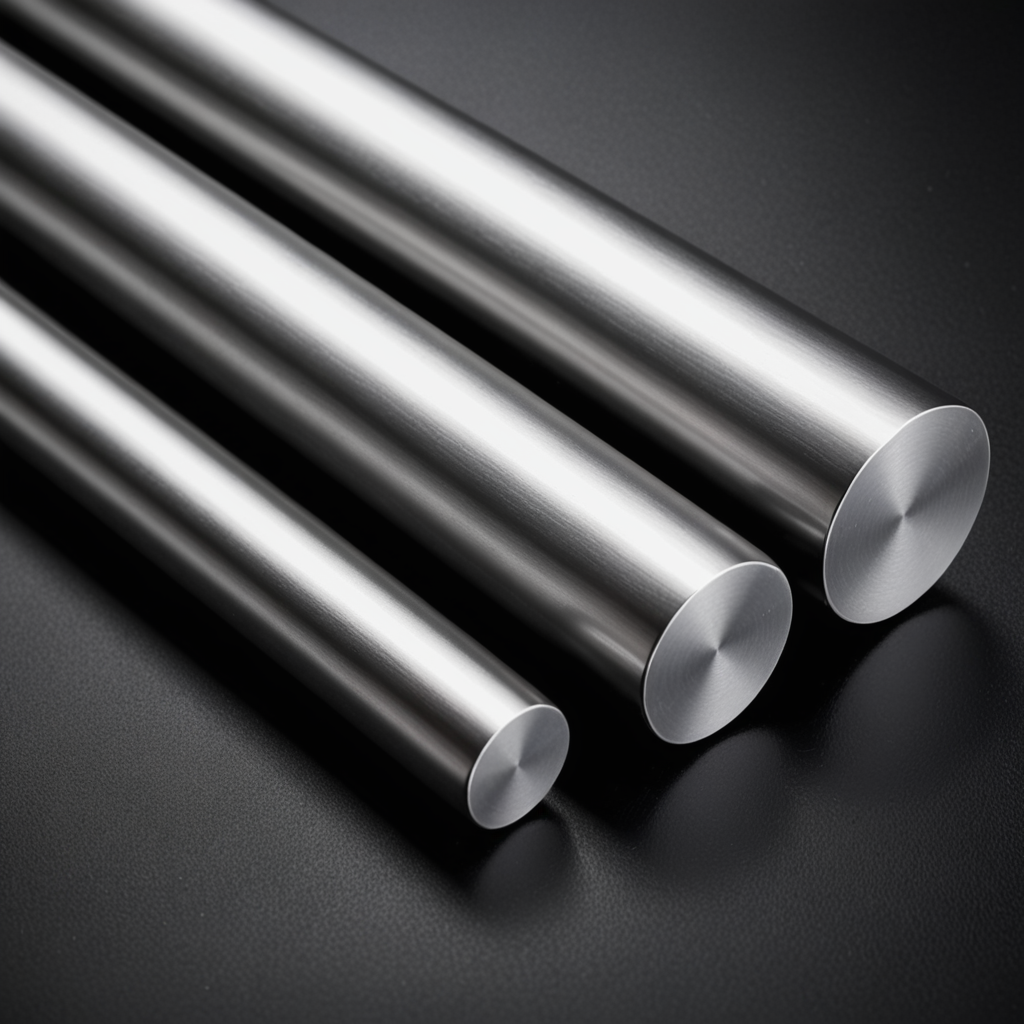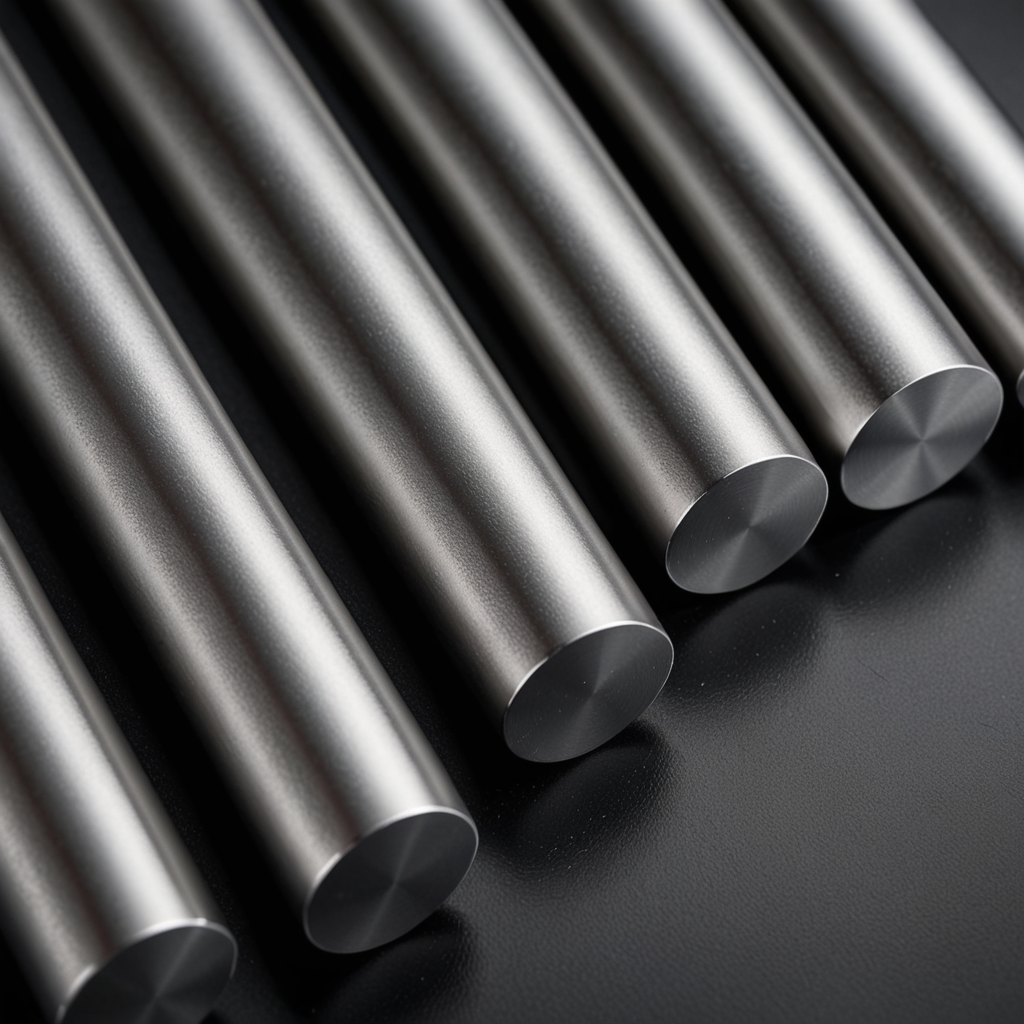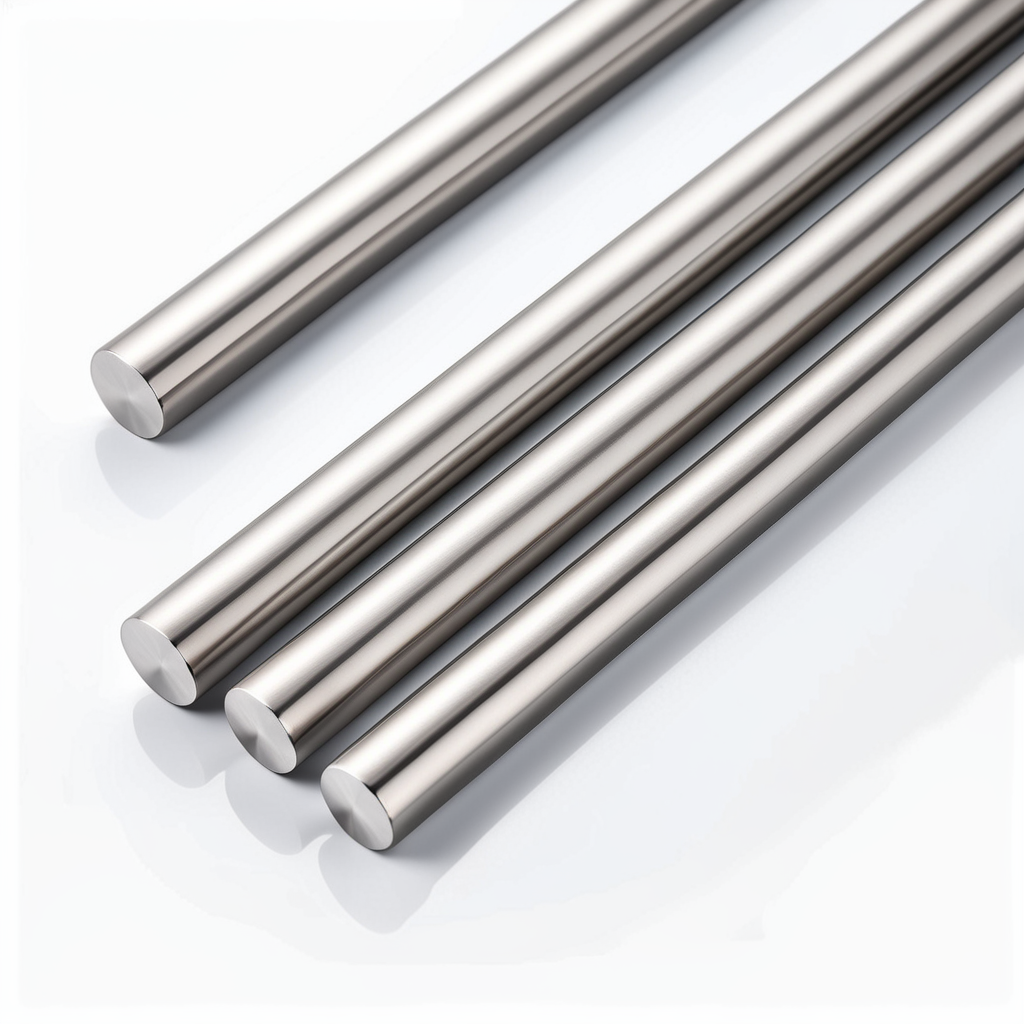In the titanium alloy market, T4C titanium alloy rods and TC1 titanium alloy rods are two widely used materials. Both play vital roles across various industries due to their unique properties. However, many people may not be fully aware of the differences between these two types of titanium rods. In this article, we will dive into the key distinctions between T4C titanium alloy rods and TC1 titanium alloy rods, helping you make an informed decision when selecting the right titanium material for your project.
Key Characteristics of T4C Titanium Alloy Rod
T4C titanium alloy is a high-strength alloy known for its excellent mechanical properties and corrosion resistance, making it widely used in industries such as aerospace, shipbuilding, and chemical engineering. T4C titanium alloy rods maintain good strength and stability even in high-temperature environments, making them ideal for applications that require high-temperature performance.
Advantages of T4C Titanium Alloy Rods:
- High Strength: T4C titanium alloy rods offer excellent strength, allowing them to withstand heavy loads without deformation or breakage.
- Corrosion Resistance: T4C titanium alloy exhibits outstanding resistance to corrosion, especially in marine or chemical environments, where it effectively withstands exposure to corrosive substances like acids and alkalis.
- High-Temperature Stability: T4C titanium alloy rods retain their strength and hardness at high temperatures, making them suitable for high-heat environments like aircraft engines and turbine blades.
- Good Machinability: Despite its hardness, T4C titanium alloy can be precisely machined into complex components using modern processing techniques.
Key Characteristics of TC1 Titanium Alloy Rod
TC1 titanium alloy is another commonly used type of titanium alloy that features excellent toughness and ductility, making it ideal for cold-forming processes. Compared to T4C, TC1 titanium alloy rods are more suited for structural components and frames that require a higher degree of flexibility.
Advantages of TC1 Titanium Alloy Rods:
- Excellent Ductility: TC1 titanium alloy rods perform well in cold-forming environments, allowing them to be stretched, bent, or shaped without cracking.
- Lightweight: Although TC1 titanium alloy may not be as strong as T4C, its low density and lightweight properties make it suitable for applications where weight is a critical factor, such as aerospace and automotive industries.
- Good Weldability: TC1 titanium alloy can be easily welded, making it an excellent choice for components that require welding during assembly.
- Corrosion Resistance: Like T4C, TC1 titanium alloy also offers excellent corrosion resistance, making it suitable for use in corrosive environments such as marine or chemical industries.
Key Differences Between T4C and TC1 Titanium Alloy Rods
While both titanium alloy rods share several advantages, such as corrosion resistance and low density, they differ significantly in terms of strength, ductility, and their application scenarios. Below are the major differences:
1. Strength and Hardness:
- T4C titanium alloy rods are significantly stronger than TC1 titanium alloy rods. T4C is better suited for applications that require high-strength support, such as aircraft engines and high-pressure vessels.
- TC1 titanium alloy rods offer superior toughness and ductility, making them more suitable for structural components and parts that require cold-forming.
2. Machinability:
- T4C titanium alloy rods have higher strength, making them more challenging to machine. They require advanced CNC machining techniques to achieve precision.
- TC1 titanium alloy rods are easier to machine, particularly in cold-forming processes, making them ideal for stretching, bending, and other shaping operations.
3. Application Fields:
- T4C titanium alloy rods are primarily used in high-temperature, high-load environments, such as aerospace, ship propulsion systems, and more.
- TC1 titanium alloy rods are widely used in applications that require toughness and flexibility, such as structural components, automotive parts, and chemical equipment.
4. High-Temperature Performance:
- T4C titanium alloy rods perform exceptionally well in high-temperature conditions, maintaining stable mechanical properties under extreme heat.
- TC1 titanium alloy rods are not suitable for extreme heat environments and are more commonly used in ambient or moderate-temperature applications.
How to Choose the Right Titanium Alloy Rod?
Choosing between T4C titanium alloy rods and TC1 titanium alloy rods depends largely on your specific application needs. If your project requires high strength and corrosion resistance in high-temperature environments, T4C titanium alloy rods are the ideal choice. Their high-temperature stability and corrosion resistance make them perfect for industries like aerospace and petrochemical engineering.
However, if your project requires superior cold-forming performance, ductility, and lightweight properties, TC1 titanium alloy rods are a better fit. They provide the flexibility needed for structural components and parts that require extensive forming.
Summary: Ideal Applications for T4C and TC1 Titanium Alloy Rods
T4C titanium alloy rods are well-suited for high-strength, high-temperature equipment in extreme conditions, while TC1 titanium alloy rods are better for cold-forming applications that demand greater toughness and ductility. Both materials offer unique advantages, and businesses should select the right titanium alloy rods based on their project requirements, ensuring stability, reliability, and cost-effectiveness.
Whether you need the strength and heat resistance of T4C titanium alloy rods, or the flexibility and machinability of TC1 titanium alloy rods, understanding the differences between the two will help you make an informed decision and improve the success rate of your project.


